Consultants are a strange breed. We span all industries, but ultimately we are in the business of helping executives make difficult decisions and implement change. It is a combination of strategy (head), culture (heart), and operations (hand). Oddly, the most important ingredient is leadership, which consultants cannot provide. Only clients can provide the WHY that motivates people into action.

Consultants love data. First, clients struggle with it. They are like data hoarders who just watch it pile up and yet are afraid to confront it. For me, the idea of big data is a bit comical at times, since most clients cannot deal with their small data. Sometimes, you can just put the data into excel and quickly make sense of it. As a new consultant, you better be good with excel and powerpoint.

We obsess about data because is is apolitical, and provides credibility for our recommendations. In MBA, we all learned that averages are often the wrong answer, so we often use excel models to run “what if” scenarios and understand how (in)accurate a set of assumptions will be. We are revision crazy and have a serious fear of failure.
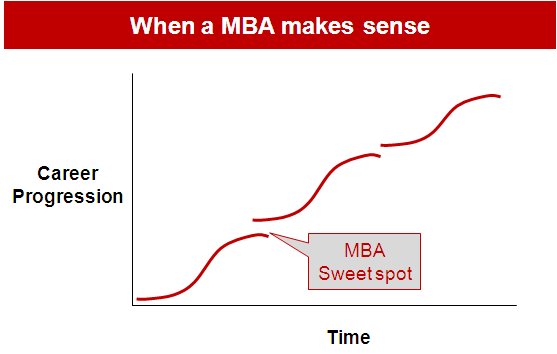
Consultants have great tools and methodologies – maturity models, evaluation frameworks, best practices, interviews, DMAIC, SIPOC, Poka-Yoke, Six Sigma, the list goes on and on. Frameworks help you think through problems. However, the crux of consulting is asking good questions: who, what, why, when, where. Some of the basic tenants of supply chain like LEAN apply to all industries, including healthcare.

Consultants are in the influence business. We borrow authority from our clients, to help them make change happen. We make presentations, but don’t have the power; clients do. The projects can be short, and yet, we need build rapport quickly. . .with IT for the data, with executive assistants to schedule meetings, and with stakeholders. A lot of times, our job is to nudge people to make decisions they know are right. We think, write, communicate, then repeat the process.

(Good) consultants think like executives. Read what they read, find relevant surveys. Read Peter Drucker. Understand management trends. Think globally. Listen to relevant podcasts, TED talks or Stanford entrepreneur videos. Now a days, there are ivy-league level courses online for free. You can take accounting classes from Wharton; no degee, but you will learn a lot. My first video on strategy here. Quora is a great way to find out about 1st-hand management experiences.

Consultants (over)use PowerPoint to communicate. We use it daily. It starts with a strong understanding of the audience and purpose. First, does the structure support the narrative? Second, do the slides make sense by themselves? Third, have your edited and put the finishing touches on the pages? Is the “deliverable” something you are proud of?
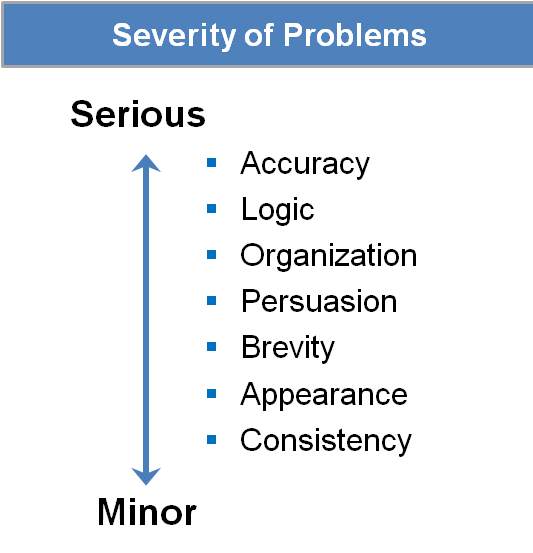
As with writing, brevity is the best. Make sure your slides have a clear point; it should not be ambiguous what you are saying. Some of this has to do with logical structure of what you are saying, while other times it is how the facts are laid out on the page.
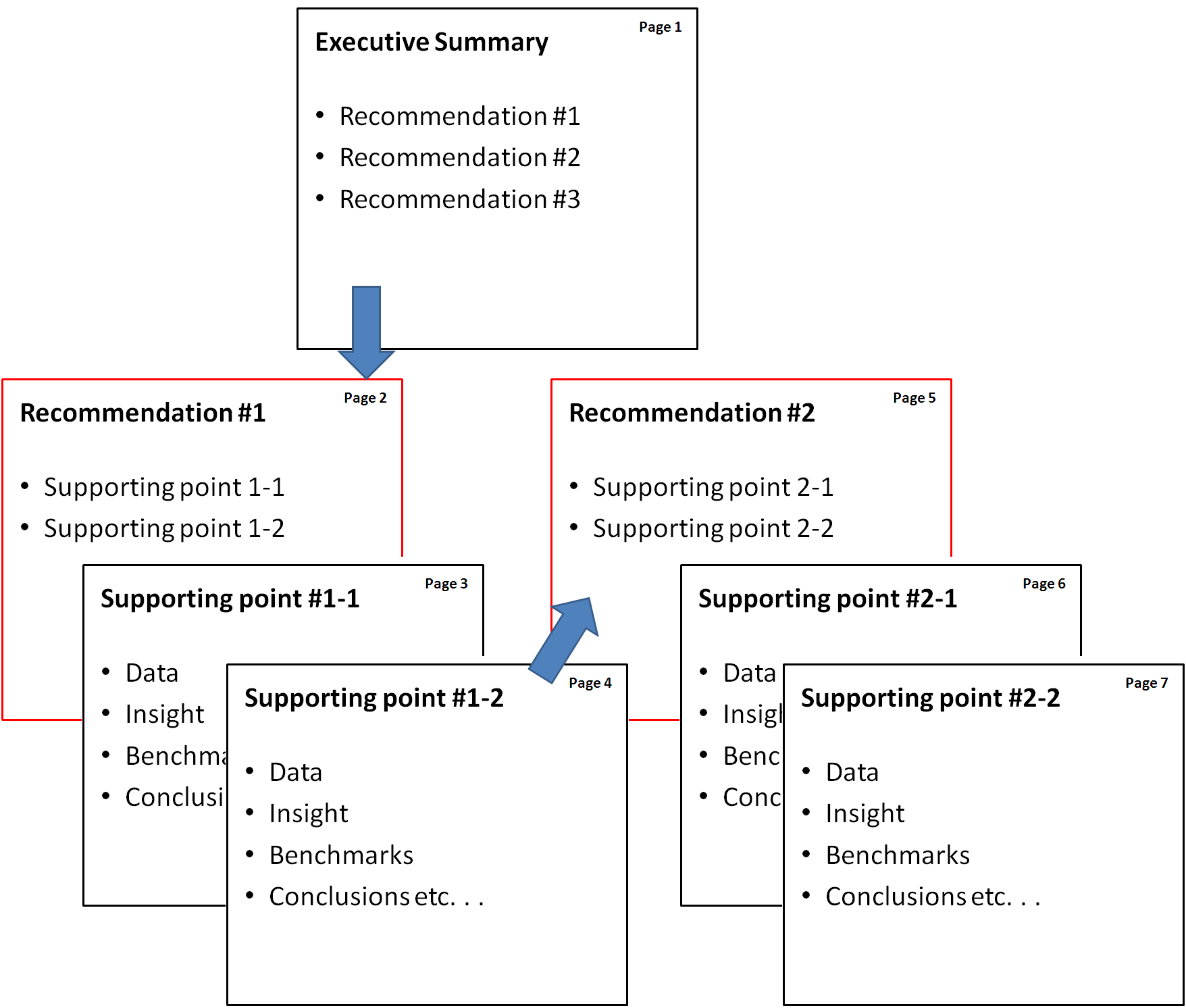
Consultants are intellectually curious. McKinsey’s chairman once said that the best candidates were “insecure overachievers“. The best consultants are obviously smart, but also aware, fun and eager. They are fast learners, who are good at breaking problems down into mental lego pieces. You can apply consulting thinking to elections, college football, gift cards, Olympics, or the value of a a life.

The fun part of consulting is tackling difficult problems. That is probably why we use case interviews to test structured thinking. It’s rooted in hypotheses and the counter-intuitive method of guessing your way to a solution. There is always a trade-off, an opportunity cost that the client is not seeing; it’s our job to shed light on this.
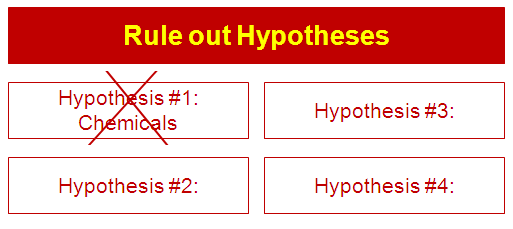
Consultants make clients successful. Sometimes the project scope is clear and sometimes it is not. We often have to find smart ways to say no to clients, for their own good. It’s not always the way you planned it in the proposal; you have to adapt.
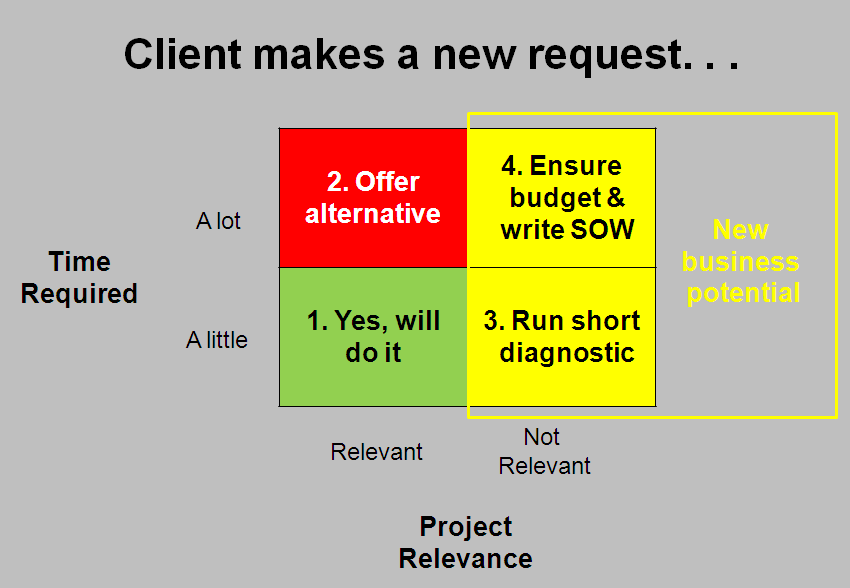
Clients also get caught up in bad corporate habits and inertia and lose effectiveness. Sometimes, they even hire us to be the bad guys. We never embarrass our clients; we allow them to “save face“. We will find a win-win solution for them. Even when we are building rapport, being likable, we also need to be ourselves, and be authentic.

Consultants get lazy. We have bad habits. Oh yes. We use jargon constantly. Sometimes, we rely too much of previous examples of the work, and recycle materials. Be careful, clients will fire you if you get too lax, then it will be resume time. We eagerly seek feedback to improve. As some say, you are only as good as your last project.
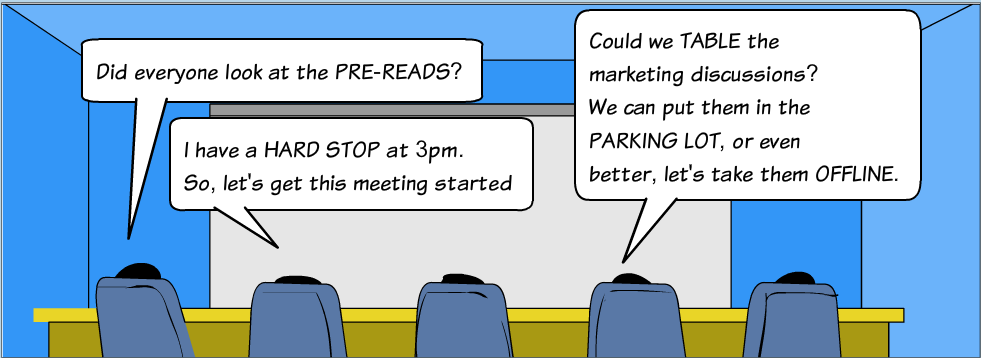
Consulting is a lifestyle. There are so many great things about the consulting lifestyle. It sounds glamorous – good pay, smart and amiable people, solving tough problems, good meals, and travel – but it’s not all rainbows and ponies. Lots of late nights. No really, weekend work. But great consultants convert that stress into positive energy. Live to fight another day. Find good people to work – people who pass the airport test; spending 8+ hours stranded in an airport with. Find people you like working with, who wants to travel 80% of the time?

Consulting is a leverage model. Younger, newer, cheaper consultants do work which can be billed out at higher rates. There are finders (partners who find work), minders (who farm the projects), and grinders (who grind out the analyses). The projects with the highest leverage tend to be IT projects.
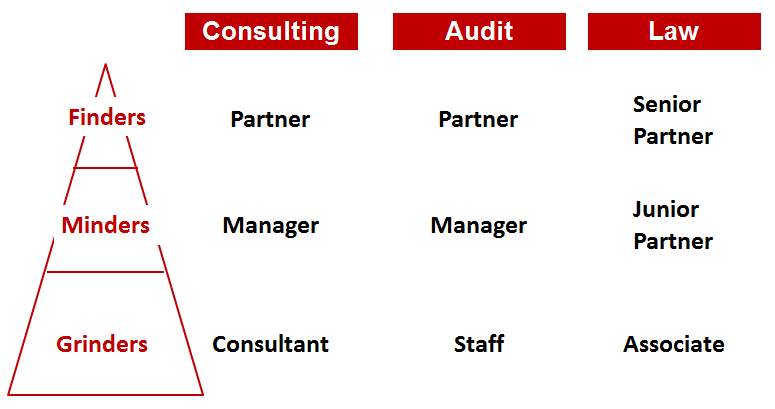
Consulting is an apprenticeship. It’s a tough business with a high level of attrition. Learn as much as you can from managers. Don’t want until the year-end review to see how you are doing. We get paid well, and our clients want a good return on their money.

Consulting teams excel. Ultimately, consulting is about people. Partners and principals have the responsibility of building the team environment and culture. It’s a can-do culture; consultants don’t whine, we come up with solutions. It’s not all fun and games; there are times when it is a flat democracy and everyone’s voice should be heard, and other times, it can be a dictatorship to get things done.

(Good) consultants innovate and have fun. Personally, some of the business problems that I find the most interesting are how smaller companies can scale quickly without losing their founder’s mentality. Even if you are not a technology consultant, you have to stay up on technology trends from 2014, 2015 and beyond. Unfortunately, data does not always give you the answer. Sometimes, it is an S-curve where the past does not predict the future. Find ways to be disruptive and innovate. I always tell clients it is easy to attack complexity with complexity; it’s difficult to attack complexity with simplicity.
Any activity becomes creative when the doer cares about doing it right, or better. – John Updike, author
Thanks for reading. In my first month, I had 1 view. . . don’t be afraid to put your thoughts out there. If you like your work, someone else will too. Tap into that passion and get the chemicals flowing in your brain to do your best work. Thanks for reading.

